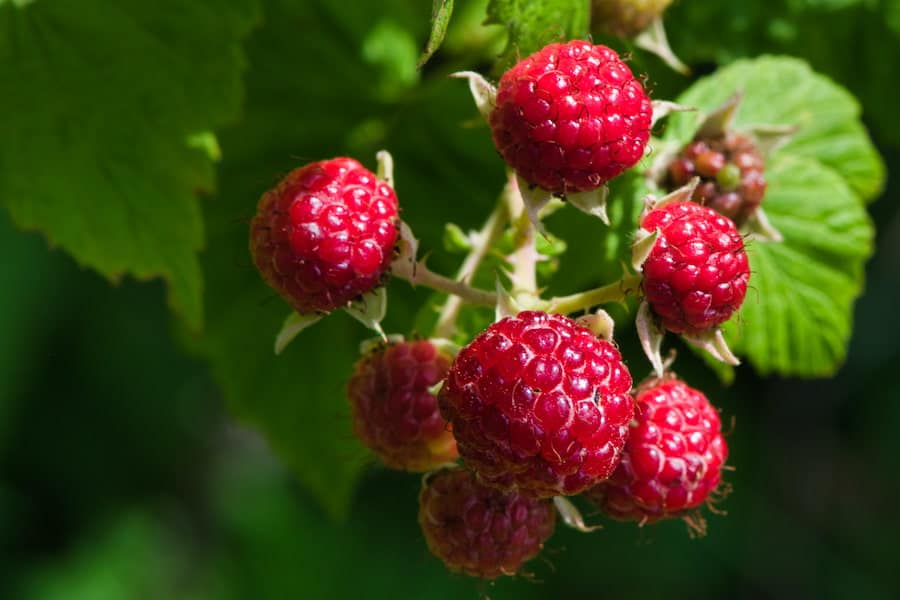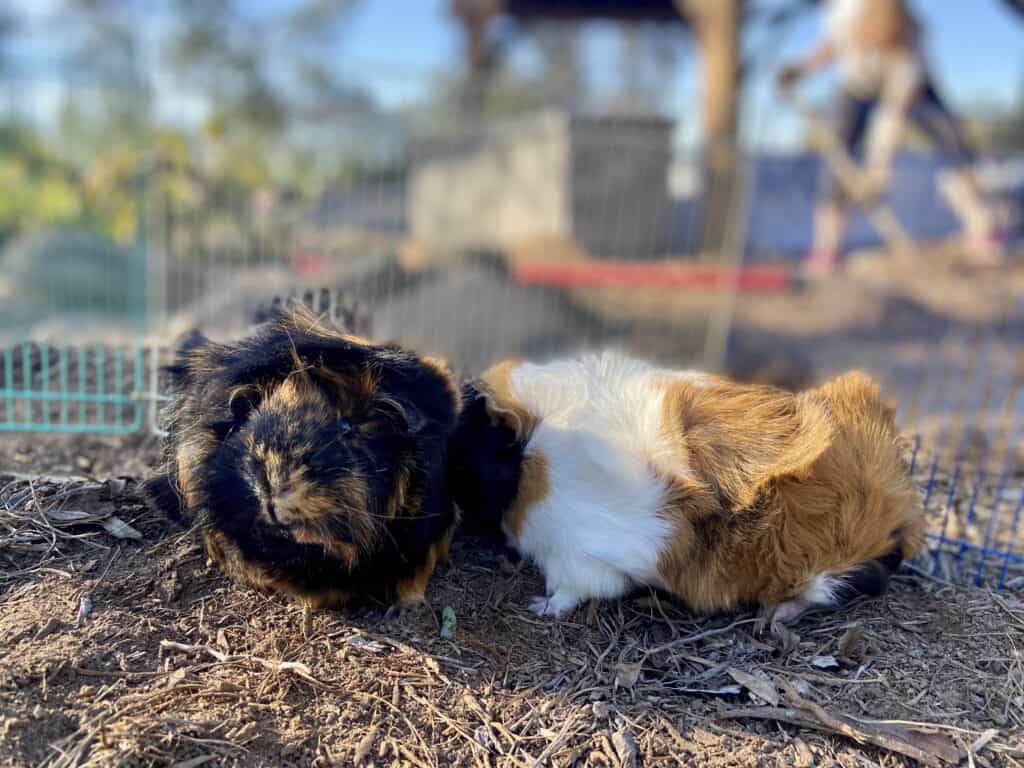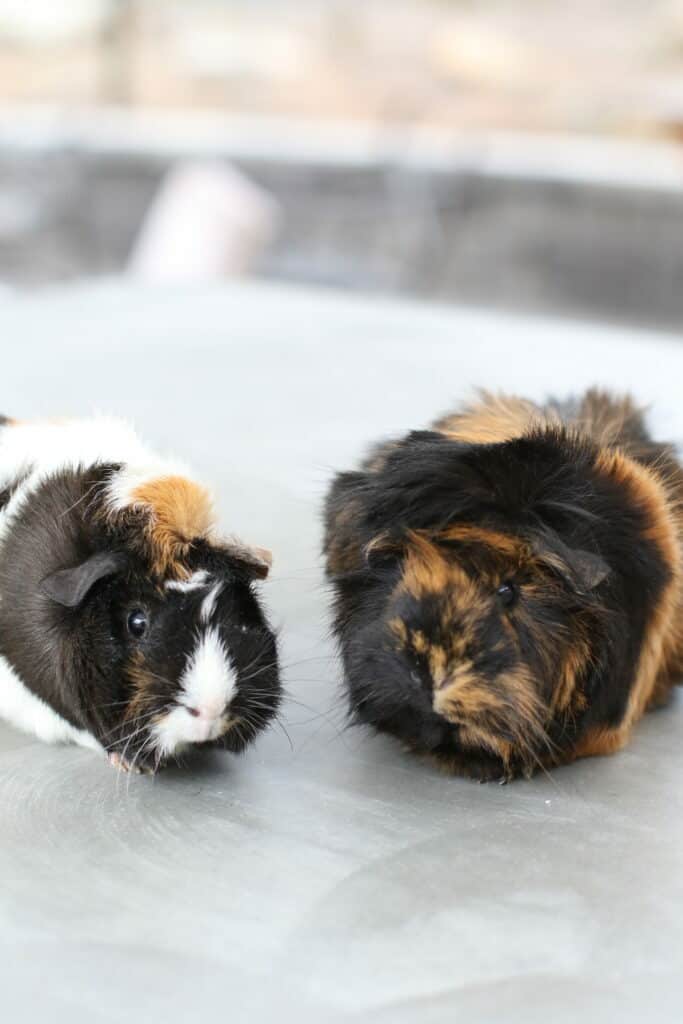As an Amazon Associate we earn from qualifying purchases.
Raspberries are famous for their subtle taste of juiciness and sweetness that most people enjoy. Due to its delicious taste coupled with health benefits, you might be wondering if it is safe for your pet Guinea pigs to eat them. Can guinea pigs eat raspberries?
Luckily, we have the answer for you!
Can Guinea Pigs Eat Raspberries?
Yes, raspberries are a safe treat for guinea pigs to eat. Not only will they enjoy the sweet flavor of raspberries, but the vitamins and minerals that the fruit contains are also healthy for them.

However, eating raspberries can also have negative effects on Guinea pigs. This can particularly happen due to overfeeding. Thus, it is important to know about the health benefits and risks that raspberries have before feeding them to Guinea pigs.
Benefits of Raspberries in Guinea Pigs
Raspberries contain a number of vitamins and minerals necessary to maintain guinea pigs’ health. Not only that, but they can also help prevent common diseases and boost guinea pigs’ immunity against health risks. Here are the nutrients that raspberries have:
- Raspberries have a large variety of vitamins and minerals. Vitamins such as vitamins E and K as well as potassium, magnesium, iron, and phosphorus can help maintain the immune system as well as good blood circulation in guinea pigs.
- Raspberries have a large number of antioxidants. Antioxidants are the ones responsible for fighting against free radicals that prevent damage to cells. Antioxidants help prevent a number of cancers and diseases not just for humans but also for guinea pigs.
- Raspberries have fiber, an amazing nutrient that aids with digestion and gut work. Guinea pigs have a sensitive stomach and fiber helps prevent diarrhea and indigestion.
For a full-grown guinea pig, 1 to 2 raspberries should be enough for them once a week. This is due to the high sugar and vitamin content of the fruit that can be harmful to them if fed in excessive amounts.
Things to Consider in a Guinea Pigs’ Diet
Assuring guinea pigs health should be the number one priority in order for them to have fulfilling and happy lives. Guinea pigs, as small as they may seem, can live up to 8-10 long years if they are treated with love, compassion, and care.
A big portion of guinea pigs’ health depends on the food that they eat which is why having knowledge about their proper diet and lifestyle is important to prevent unnecessary stress and health risks.

Guinea Pigs’ Proper Diet
Guinea pigs’ proper diet should be composed mostly of hay and grass. In fact, 80% of the guinea pigs’ overall diet should be just plain hay and grass. Also, hay and grass will provide them with all the nibbling and chewing that they need, and it will also maintain their teeth and dental health.
In addition to hay, guinea pigs needed around 10% assorted vegetables and fruits in their diet. This will make up for the number of needed vitamins and minerals to keep them healthy and safe against common diseases.
Foods That Are Harmful To Guinea Pigs
While guinea pigs’ stomachs are sensitive, eating mostly fiber-riched hay and grass allows them to enjoy a wide variety of food. However, we must know that guinea pigs are vegans, and even if they are, there are still a lot of vegetables and fruits that are harmful to them to consume. Here is a few of them:
- Coffee and chocolate
- Fruits with high sugar content
- Bulb plants
- Processed and frozen food
- Dairy products
- Meat products
Processed foods are harmful to guinea pigs as they contain chemicals and have undergone various processes for long storage life. Only feed guinea pigs fresh fruits and vegetables that are untreated with chemicals like pesticides, insecticides, and chemical fertilizers.
Proper Feeding Techniques
Feeding techniques vary depending on the food that you want to feed to your guinea pigs. For instance, hay and grass should be dried before offering to guinea pigs because fresh hay and grass contain high water content which can upset their stomachs.
Remember that most fruits and vegetables that are safe for them to eat can also be dangerous for their health if they are fed in excessive amounts. Understand how much and how frequently you should feed guinea pigs a specific food before incorporating it into their next meal.

Related Questions
What Fruits Can Guinea Pigs Eat?
There are a lot of fruits you can incorporate into the guinea pigs’ diet along with hay and grass. These fruits include blackberries, apples, plums, bananas, blueberries, strawberries, cranberries, apricots, and all kinds of melon.
Can Guinea Pigs Eat Blueberries?
Yes, they can eat blueberries. Moreover, blueberries contain high amounts of vitamins and antioxidants that can improve guinea pigs’ health. Just remember to feed them blueberries moderately as too much can cause health risks and problems in the long run.
Conclusion
Guinea pigs can eat raspberries and enjoy the health benefits it contains. Raspberries have high amounts of antioxidants as well as vitamins and minerals that are healthy for them. On the other hand, feeding guinea pigs excessive amounts of raspberries can have serious health implications due to the high water and sugar content of the fruits.
Thus, it is necessary to feed them raspberries in moderation.